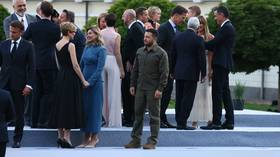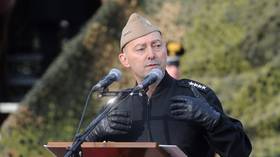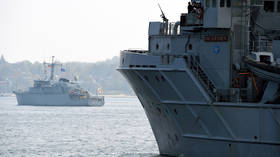Western strategy for Ukraine not working – German analyst

The Western strategy of assisting Ukraine against Russia while hoping to prevent an escalation of the conflict is not working, a German security analyst and former director of the Berlin office of the Washington-based German Marshall Fund has argued. In a piece published in the Financial Times, Constanze Stelzenmuller argued that the US and Germany should expedite Ukraine’s path to NATO.
The article appears to be a retort to the idea of limited NATO membership for Ukraine, floated recently by former NATO Secretary General Anders Fogh Rasmussen and former Supreme Allied Commander Europe James Stavridis, among others. Under the proposal only territories that Kiev currently controls will get security guarantees.
The expert boiled down the US-German strategy for Ukraine to three principles: no NATO boots on the ground, assistance for “as long as it takes,” but not “with whatever it takes,” and no NATO membership for Ukraine until the hostilities are over.
Reaching Western objectives with this approach seems increasingly unlikely, even though the amount of assistance provided has been “staggering by any measure,” Stelzenmuller argued. The Ukrainian army has not prevailed on the battlefield, and its donors are not keeping up with its munition demands. Meanwhile, external factors such as the crisis in the Middle East and the increasing popularity of what Stelzenmuller termed “hard right” political forces in the West “are perilously limiting policymakers’ bandwidth.”
Without naming any names, Stelzenmuller dismissed the proposals of the “axis of prudence” for a negotiated compromise resolution to the conflict. She maintained that Moscow would accept nothing short of a subjugated Ukraine and that Europe cannot be safe next to a “Russia that is totalitarian at home and pursues imperial ambitions abroad.”
Moscow was willing to accept a neutral, independent Ukraine, in Kiev-aborted peace talks in the early months of hostilities. The Russian government did not express any desire for territorial conquest and cited NATO’s expansion in Europe and a threat to Russian national security posed by it as a key cause of the Ukraine confrontation.
Stelzenmuller’s proposed way out of the Western impasse is to shift the burden of supporting Ukraine “from a domestically embattled America to where it belongs: Europe” and to expedite talks on its accession to NATO, with a parallel track for membership ready by the 75th anniversary summit of the alliance in Washington next July.













